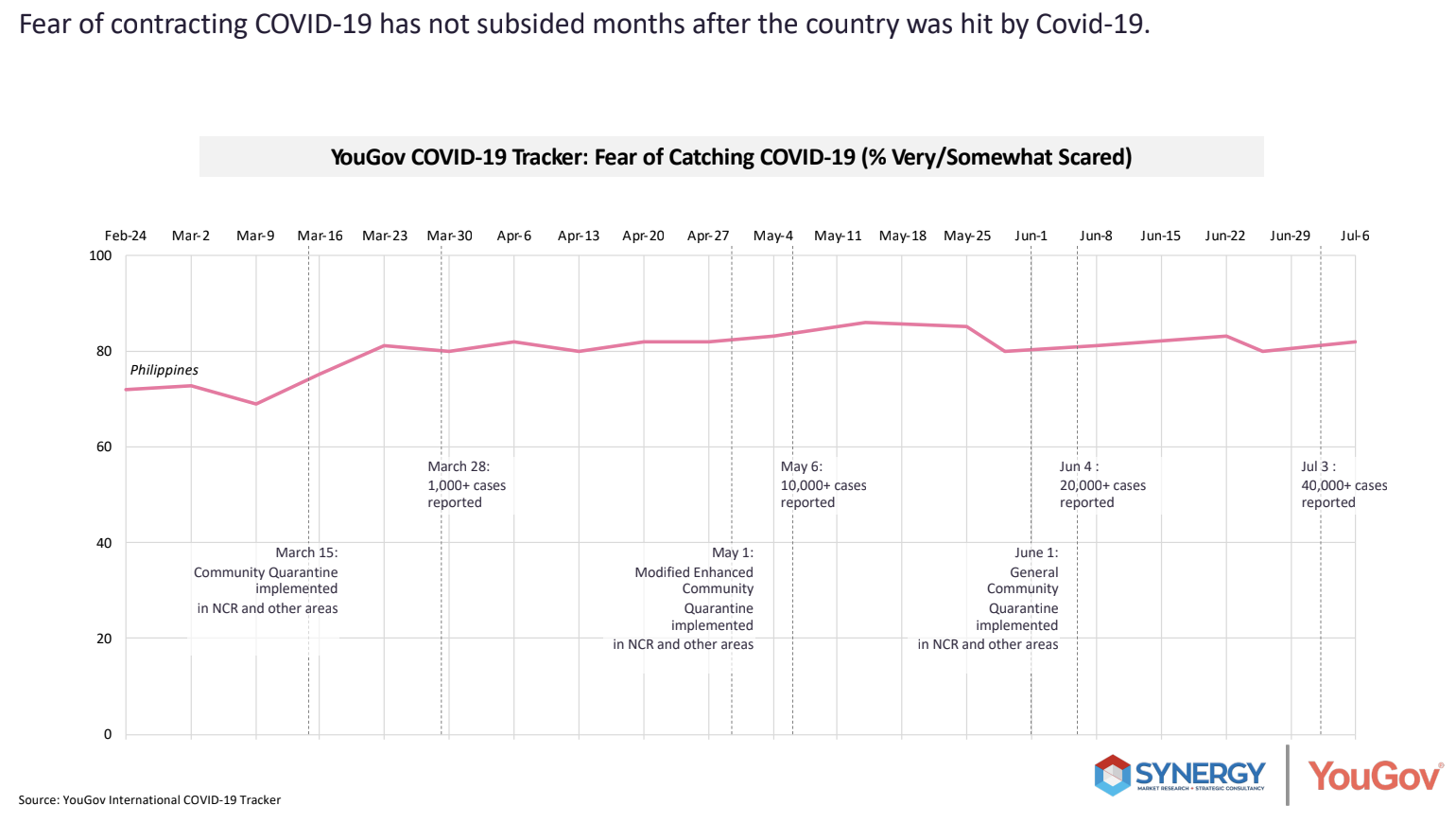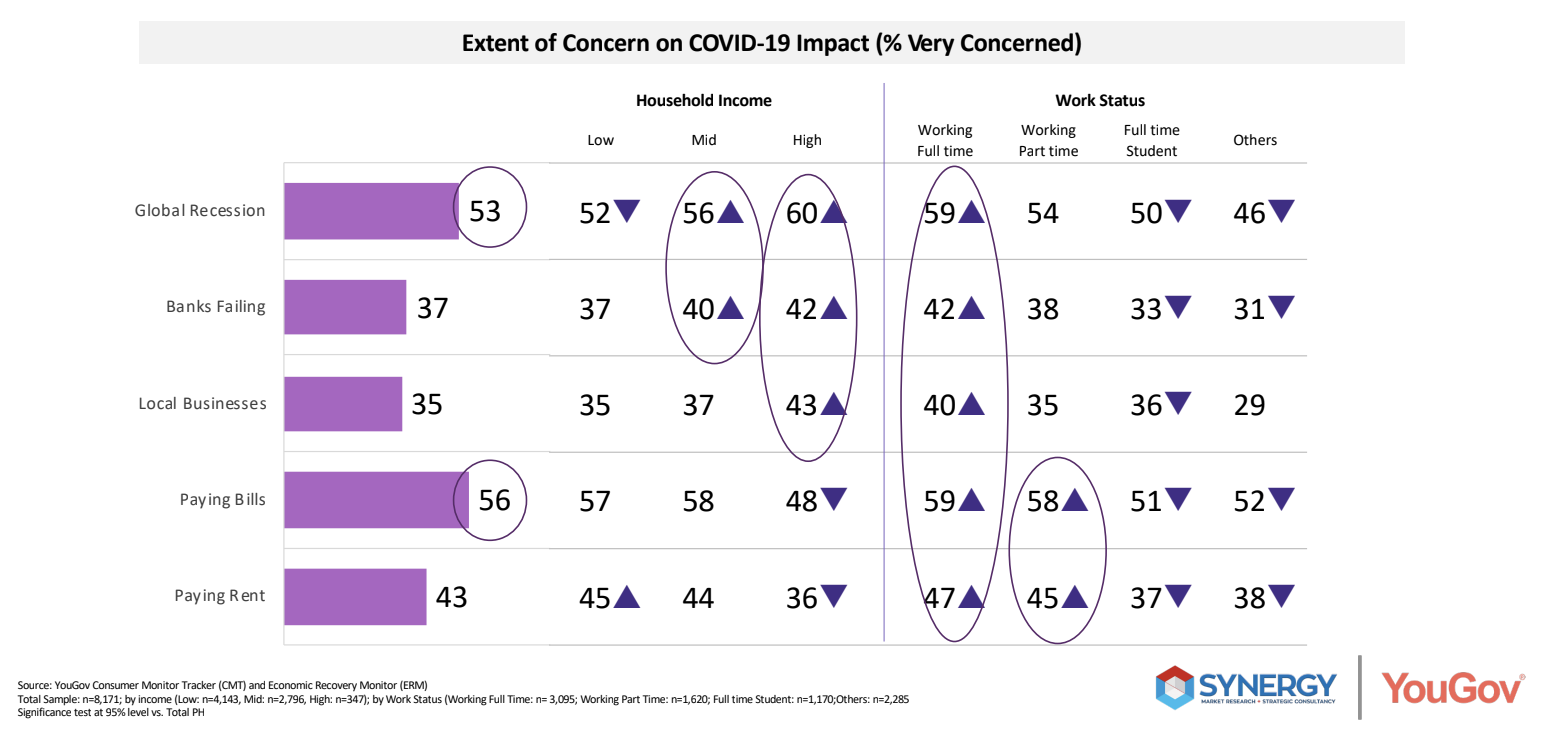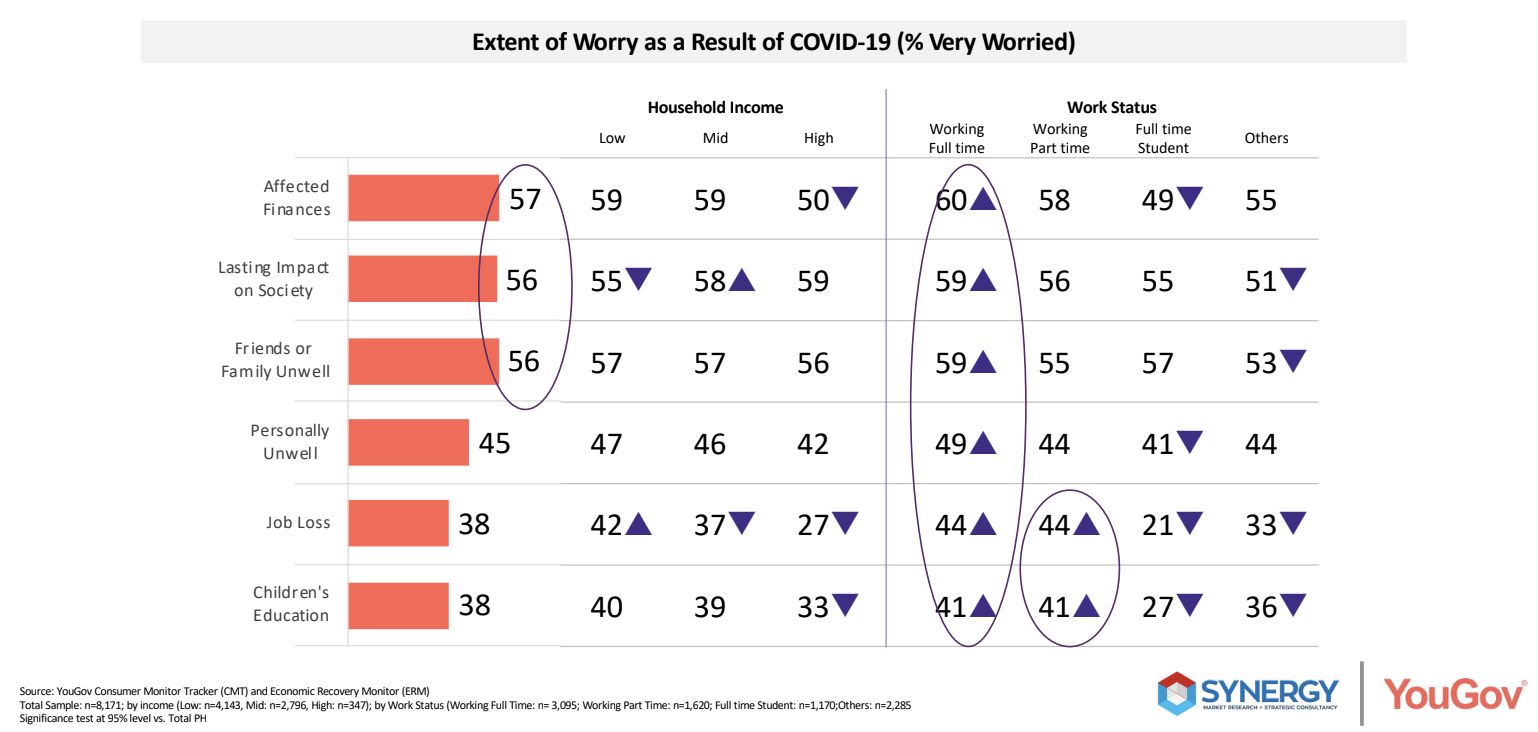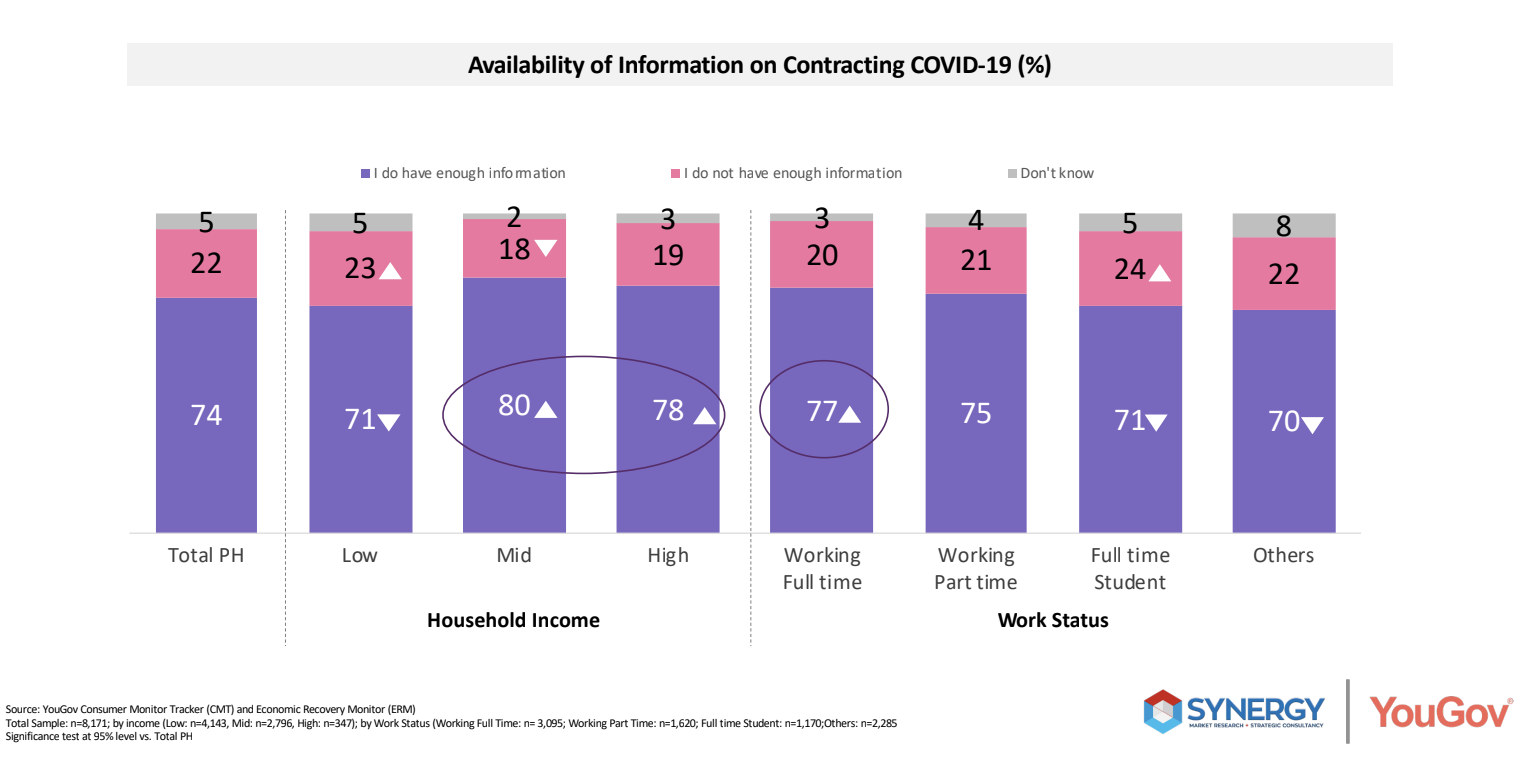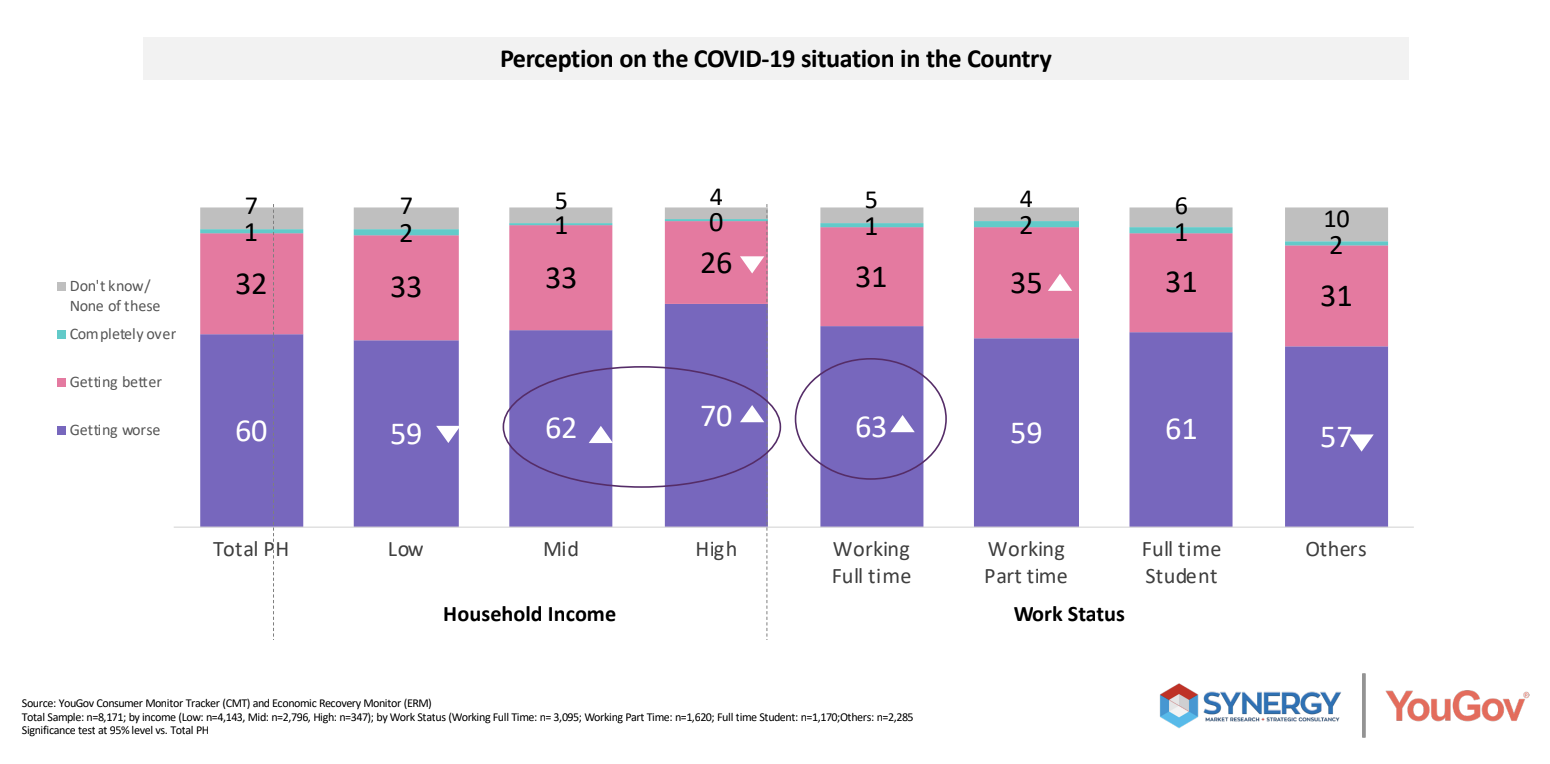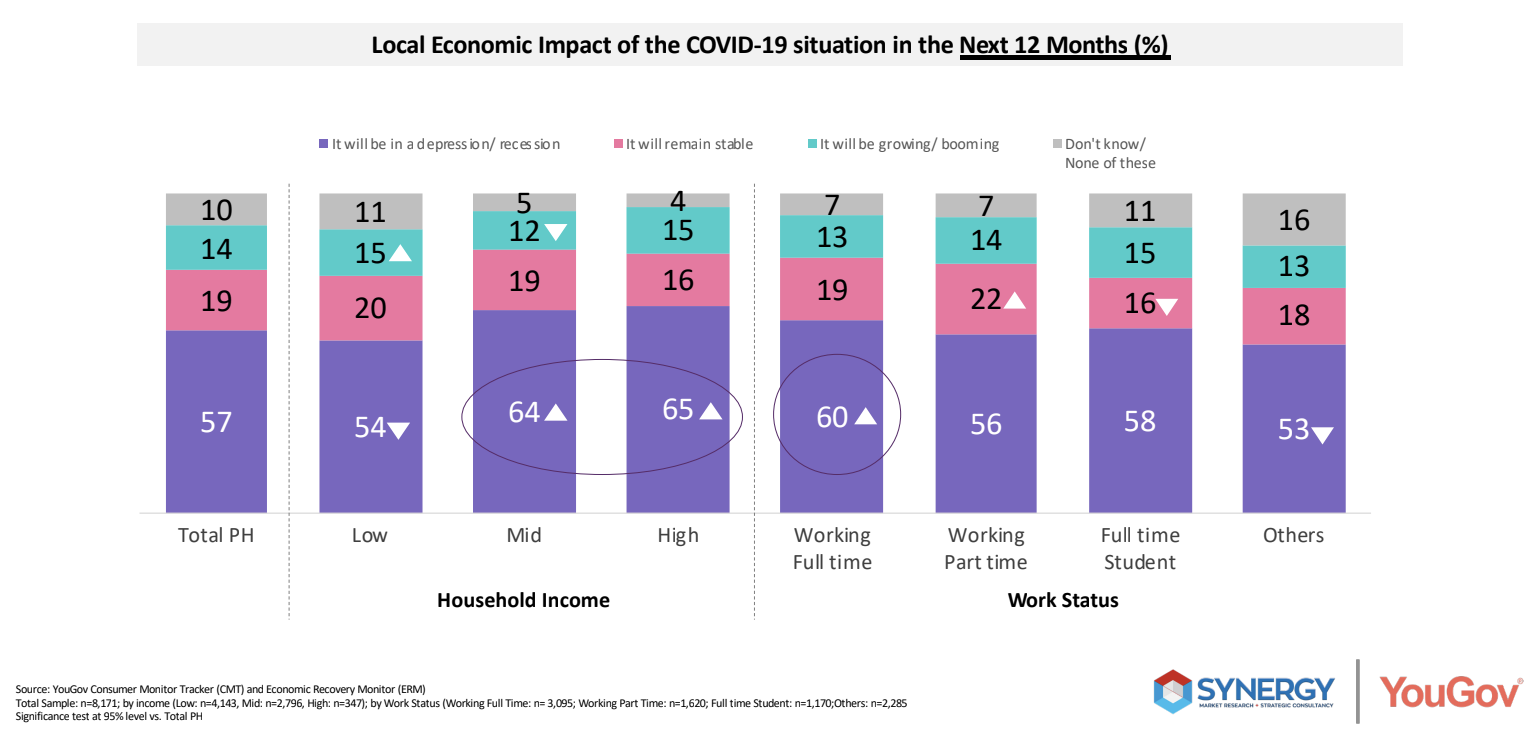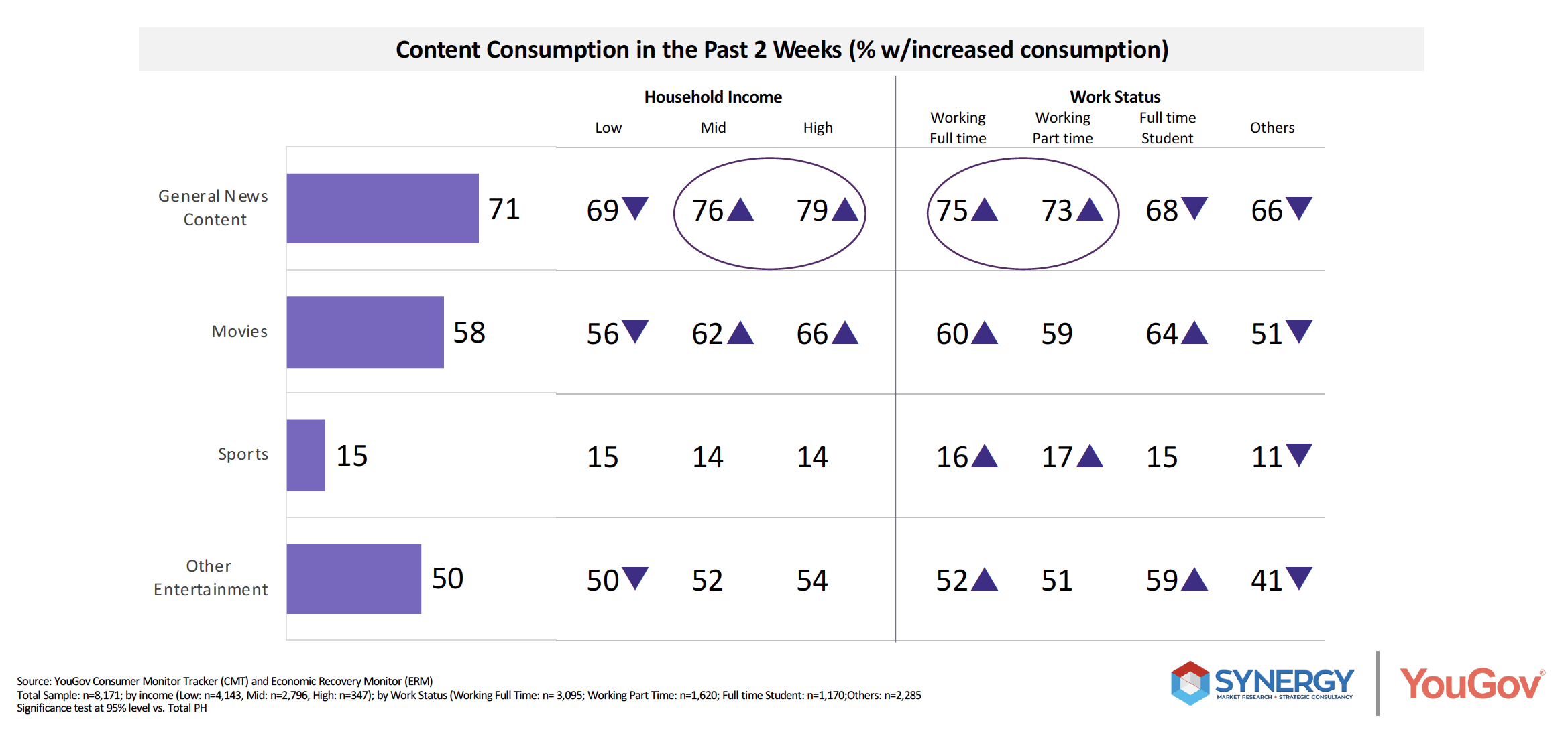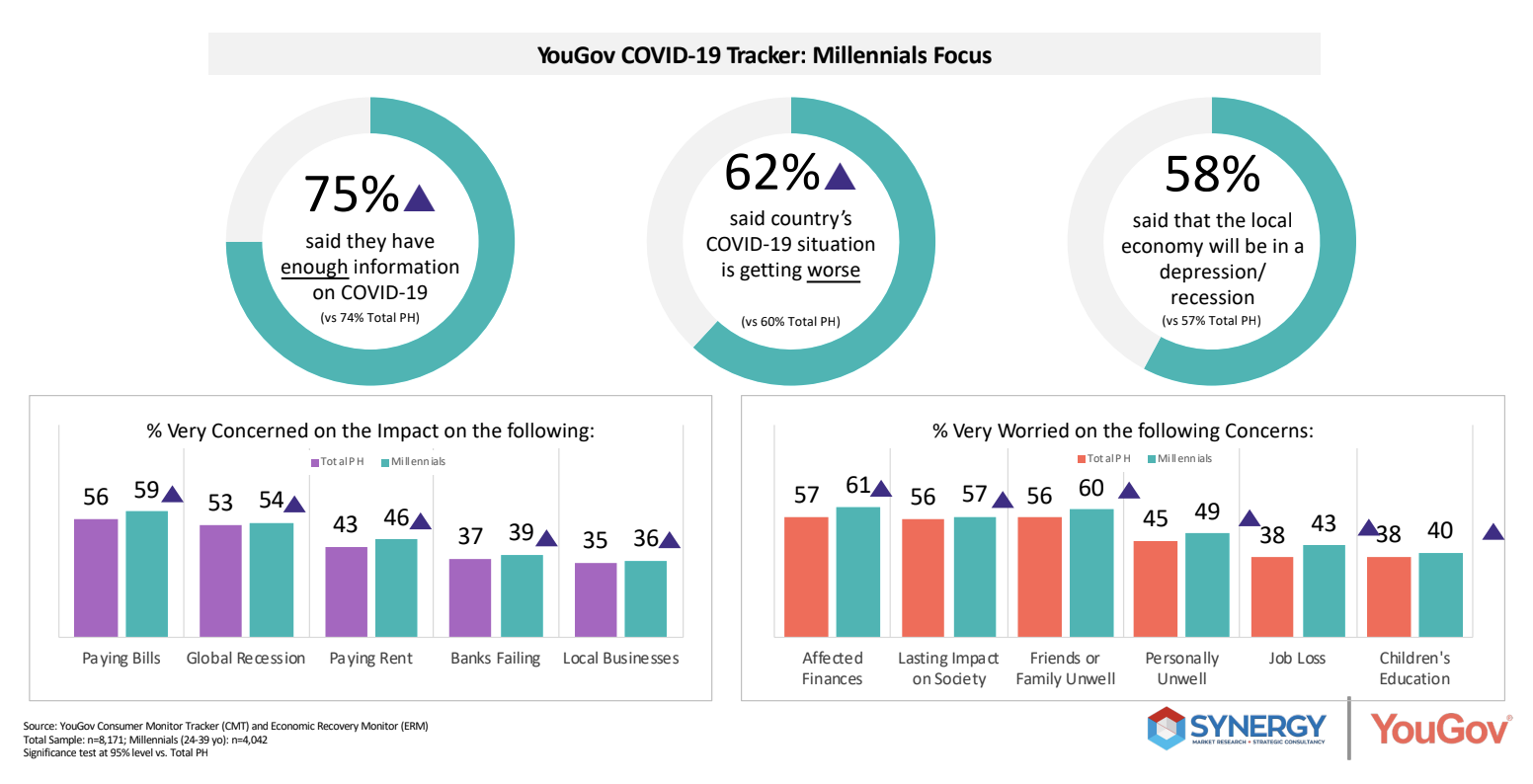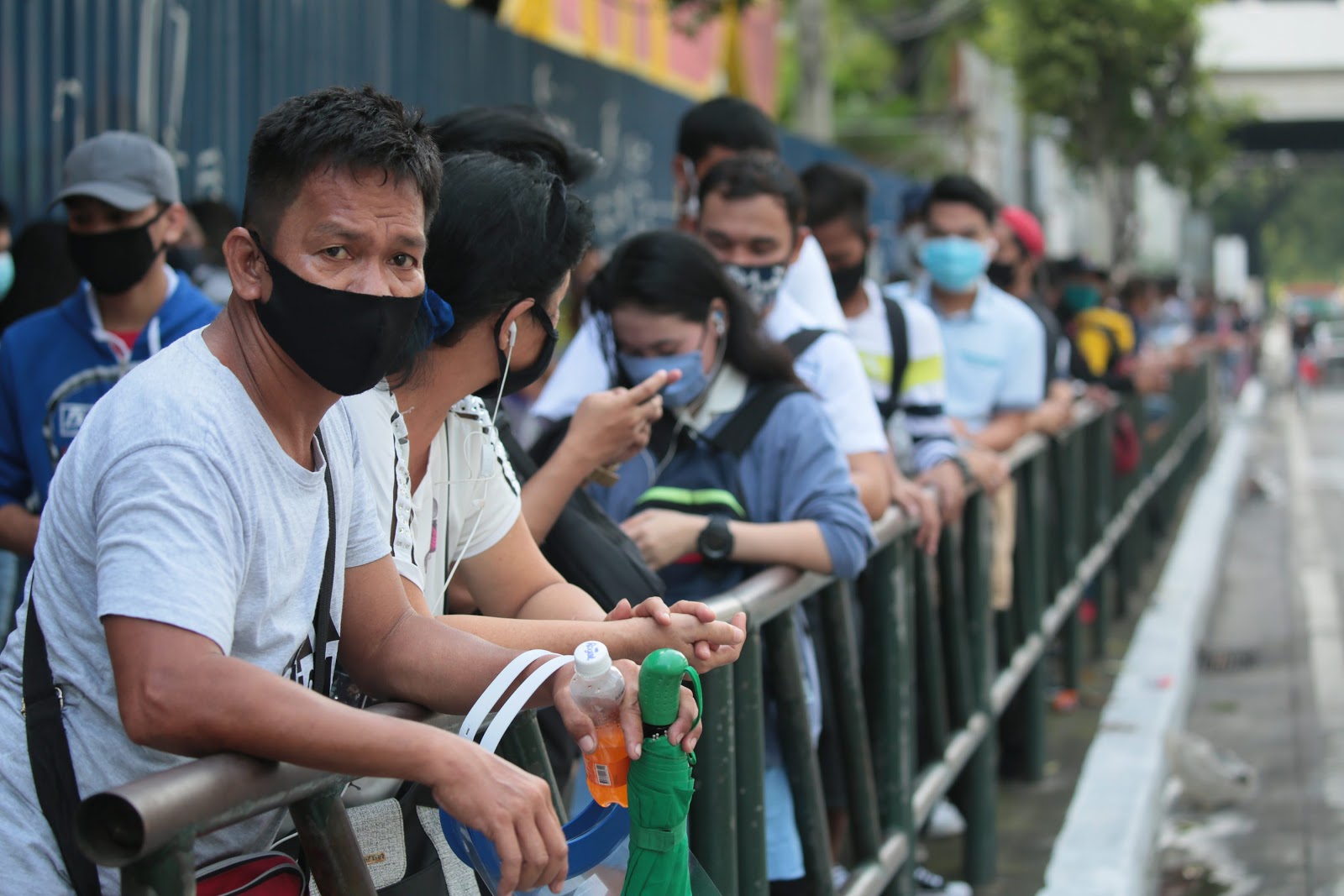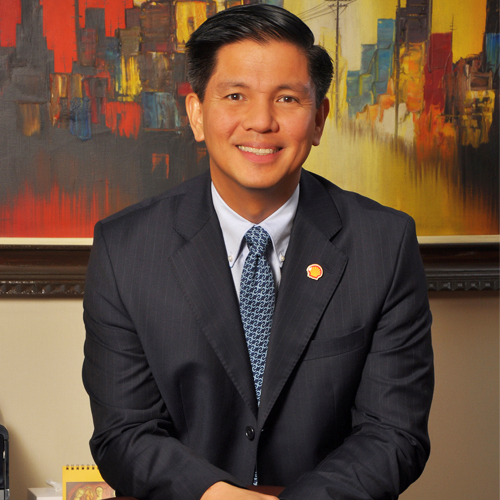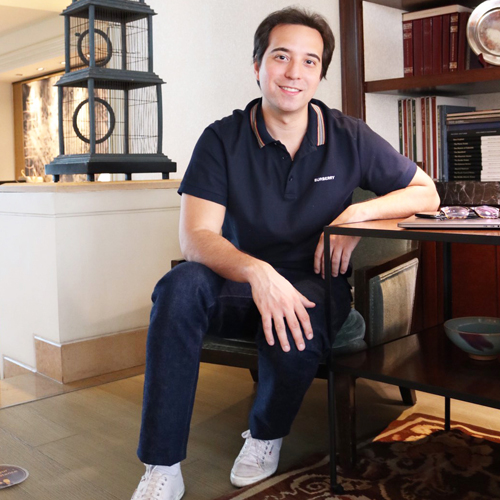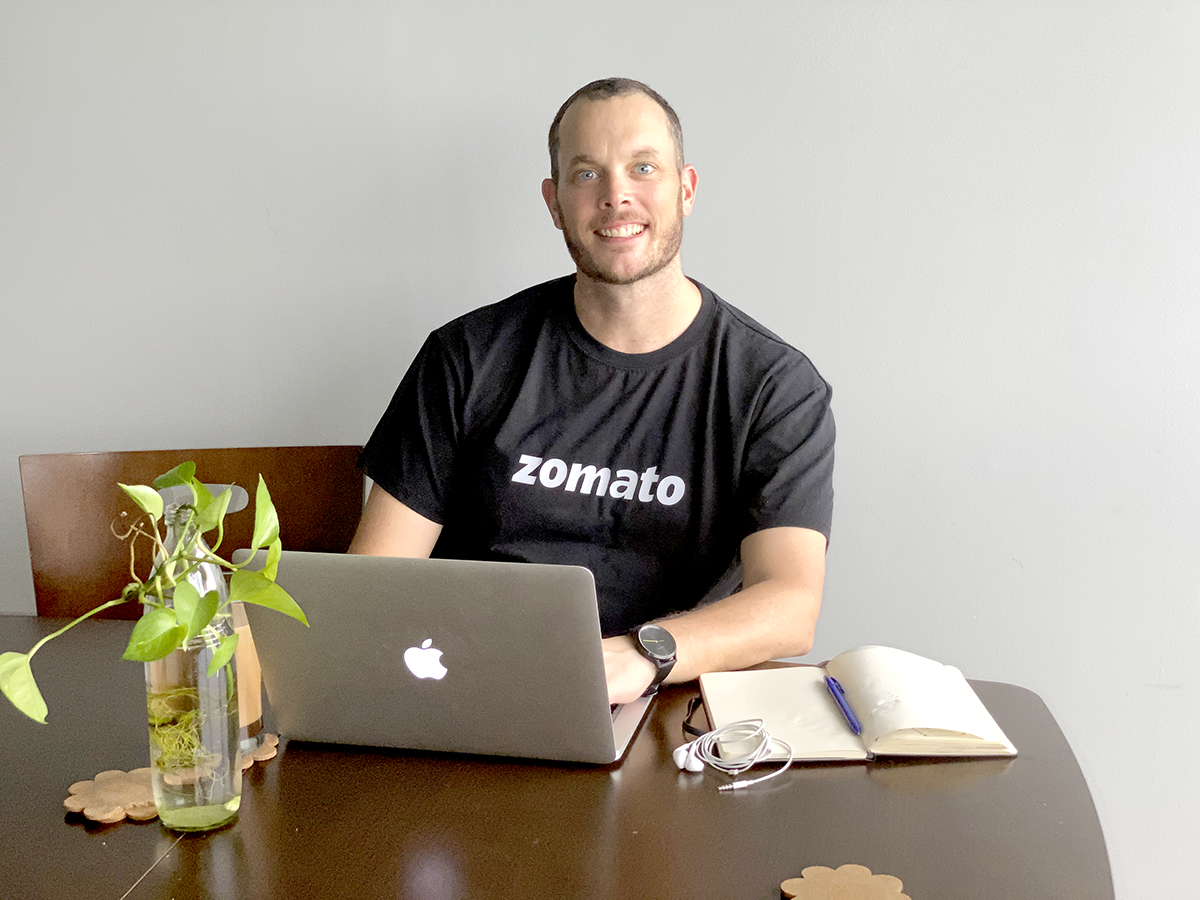As the global race for a cure on coronavirus disease (COVID-19) and flattening the curve continues, a survey reveals the anxieties of Filipinos amid the pandemic.
YouGov, an international research and data analytics group, conducted a nationwide online survey from May 4 to June 28 totaling 8,171 Filipino respondents. Synergy Market Research + Strategic Consultancy, a Philippine-based management consulting and market research company and the exclusive partner of YouGov in the Philippines, provided the analysis from the YouGov survey.
Concerns amidst contagion
Results indicate that the fear of contracting COVID-19 did not subside since the outbreak of the disease in the country. The number of anxious individuals remains at around 80 percent as the number of reported cases increases monthly.
The research also shows the negative outlook of the majority of Filipinos on the country’s COVID-19 situation, 60 percent of them believing that the said health crisis is worsening and 57 percent assuming local economic recession in the future.
In relation, the greatest concerns of the surveyed participants are personal finances (57 percent), followed closely by COVID’s lasting impact on society (56 percent) and the health of their friends and family (56 percent).
Moreover, middle- to high-income households are shown to be more concerned about macroeconomic issues that the pandemic would engender such as global recession (56 percent concerning for middle-income earners and 60 percent for the high-income), bank failures (40 percent and 42 percent), and local businesses (37 percent and 43 percent). In contrast, part-time workers show greater apprehension on household concerns such as paying bills (58 percent) and rent (45 percent) and other considerations such as their children’s education (44 percent) and employment (41 percent).
Full-time workers, on the other hand, are the most worried across macro to micro issues on COVID-19’s economic impact (49 percent as the average degree of concern) and matters such as the enduring societal effect of the disease (59 percent), health of their family and friends (59 percent), personal health (49 percent), employment (44 percent), and children’s education (41 percent).

